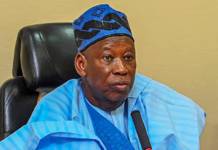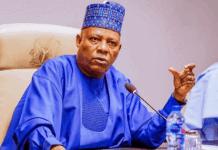*Seeks transparency in subsidy savings’ administratio
CHIGOZIE AMADI
The Executive Secretary of the Nigeria Extractive Industries Transparency Initiative (NEITI), Dr Ogbonnaya Orji, at the weekend argued that the growth of Nigeria’s extractive industries depend on active civil society participation and engagement.
Orji made the statement while delivering a keynote speech at the opening of the three-day Civil Society Roundtable on the EITI Framework in Abuja.
He spoke on the theme: “NEITI’s Mission and the Pivotal Role of Civil Society Organisations (CSOs) in Promoting Transparency, Accountability, and Good Governance within Nigeria’s Extractive Sectors.”
For the NEITI process to succeed, Orji stated that civil society must be fully equipped to play its institutional and industry-specific roles, adding that the roundtable was organised to achieve this purpose.
“CSOs are the watchdogs of democracy and governance. In the context of NEITI, they serve as intermediaries between the public and the government, ensuring that transparency and accountability lead to tangible policy changes and public welfare improvements,” he stated.
Orji noted that CSOs help analyse NEITI reports by identifying gaps in governance, revenue management, and environmental protection.
He added: “CSOs’ issue-based advocacy helps push for legislative reforms that address these challenges while ensuring that the data in NEITI’s reports are used constructively to promote public debate and policy reform.”
Orji also said that CSOs provide an avenue where government, the private sector, and community groups can raise concerns about environmental and social issues impacting affected communities, ensuring these concerns are considered in national resource management policies.
He reminded participants at the roundtable that NEITI’s work is guided by both the global Extractive Industries Transparency Initiative (EITI) Standards and the NEITI Act of 2007.
These frameworks, he emphasised, underline the crucial role of civil society in ensuring that Nigeria’s wealth from natural resources is managed for the benefit of all citizens.
Referring to the 2022/2023 Oil and Gas Industry Report, Orji urged CSOs to focus their advocacy and enlightenment activities on the significant findings in the document.
On crude oil theft, Orji reiterated that the report revealed that in 2023, about 7.68 million barrels of crude oil were either stolen or lost, a 79 per cent drop compared to the figure recorded in 2022. He encouraged CSOs to monitor the government’s strategies to combat oil theft and advocate for stronger environmental protections.
Regarding revenue losses and underreporting, Orji said the report disclosed that outstanding collectible revenues due to the federal government amounted to over $6.071 billion and N66.4 billion.
He added that CSOs must advocate for improved revenue collection mechanisms to ensure that the full value of Nigeria’s oil resources benefits the nation.
On the fuel subsidy removal and deregulation policy in the downstream petroleum sector, Orji urged CSOs to ensure that the government’s transition plan is transparent and that subsidy savings are channelled into development projects.
Addressing environmental impact and sustainability concerns, Orji called on CSOs to use the environmental data in the report to advocate for stronger protections and corporate accountability, particularly in the Niger Delta region.
In terms of energy transition and climate change, Orji said CSOs have a vital role in pushing for a just transition that does not disproportionately impact vulnerable communities.
Acknowledging the potential risks CSOs face in fulfilling their roles in the NEITI process, Orji proposed mitigation measures to prevent their advocacy work from being hindered.
He identified these risks as including personal and organisational security, recommending that CSOs invest in security training, establish support networks, and collaborate with international partners to ensure their safety.
To mitigate funding resource constraints, Orji advised CSOs to diversify their funding sources, including international partnerships, government grants, and private donations, to sustain their effectiveness.
The Civil Society Representative on the National Stakeholders Working Group (NSWG), Dr. Erisa Sarki, highlighted the key roles of civil society in the NEITI process.
She emphasised the strategic importance of the meeting in reconciling, reuniting, and developing strategies to create public awareness through the dissemination of information and data about the extractive sector, advocating for policy reforms, and fostering multi-stakeholder dialogue.

























